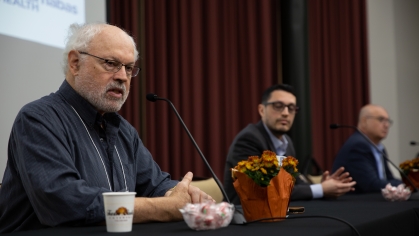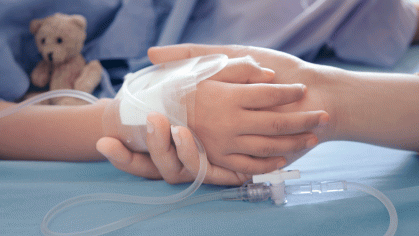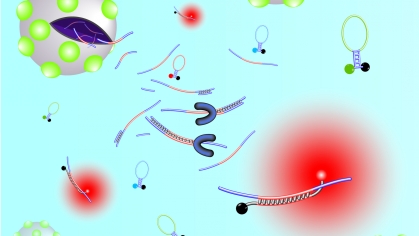Rutgers Seeks Participants for Monkeypox Treatment Study

Rutgers New Jersey Medical School is one of nearly 80 sites in the United States that will enroll participants in a new study to evaluate whether tecovirimat is effective in treating human monkeypox.
The randomized, placebo-controlled, double-blind trial has been designed to test the safety and efficacy of tecovirimat in the treatment of monkeypox. The Study of Tecovirimat for Human Monkeypox virus (STOMP) has been designed to learn as much as possible from a broad population of people with monkeypox.
“It’s been challenging to treat monkeypox with limited data on effective treatments,” said Debra Chew, principal investigator of the study at Rutgers Research with a Heart, associate professor at Rutgers New Jersey Medical School and the medical director for the Infection Control and Prevention Committee and Antimicrobial Stewardship Program at University Hospital in Newark. “The best way to know whether tecovirimat is beneficial is to do a randomized controlled trial like this. Hopefully the results of the trial will lead to the drug being approved for human monkeypox treatment.”
There are currently no Food and Drug Administration (FDA)-approved therapies to treat human monkeypox. Tecovirimat, approved by the FDA to treat smallpox, has been approved for treatment of monkeypox virus under Emergency Use Authorization, but treatment data is limited.
A global outbreak of monkeypox emerged in the spring of 2022, with more than 68,000 cases in 106 countries and more than 25,000 cases in the U.S., including 700-plus cases in New Jersey.
Monkeypox, first identified in 1958, has caused an increasing number of infections annually in endemic countries. The current outbreak has been characterized by increased person-to-person transmission. Close contact during sexual activity is believed to play an important role in this outbreak. While most cases thus far have been reported among men who have sex with men, women and children also have been infected.
“Up until now, there have been no studies of tecovirimat in children or pregnant people, which means we lack any data on the risks and benefits of this treatment in two very important populations,” said Timothy Wilkin, study protocol chair and assistant dean of clinical research compliance and a professor of medicine at Weill Cornell Medicine. “In addition, while the data are limited, they do suggest that monkeypox can be more severe among children and pregnant people, so it will be key to understand how tecovirimat works for them.”
STOMP researchers are looking to enroll more than 500 adults with monkeypox virus infection throughout the U.S. People who have presumptive or confirmed monkeypox infection, have tested positive within seven days and started experiencing symptoms within 13 days may be eligible. Participants with presumptive monkeypox virus infection who haven’t been tested are able to enroll if their study-provided test is positive.
Importantly, people with severe disease and those at high risk of severe disease (including pregnant and breastfeeding people, children and people with underlying immune deficiency and active inflammatory skin conditions) will be enrolled in an open-label arm of the study in which all participants receive tecovirimat.
Participants with symptomatic monkeypox virus infection who don’t meet the criteria for the open-label arm will be randomly assigned in a 2-to-1 ratio to receive either tecovirimat or placebo orally for 14 days. Participants who are randomized in this arm of the study who later progress to experiencing severe disease will be offered the option to switch to open-label tecovirimat as will participants who report persistent, severe pain from monkeypox virus infection.
Participants will be followed for at least eight weeks through a combination of virtual and in-person visits and daily self-reports to determine if those receiving tecovirimat heal more quickly compared with those receiving a placebo. The study also will provide critical data on the optimal dosing and safety of tecovirimat in children and people who are pregnant and breastfeeding.
STOMP is sponsored by the National Institute of Allergy and Infectious Diseases, part of the National Institutes of Health, which also funds the AIDS Clinical Trials Group.
Those interested in learning more about the study can get additional information at https://www.stomptpoxx.org. Potential participants also may contact Rutgers New Jersey Medical School, Research with a Heart at 844-782-6765 or on Facebook/Instagram @ResearchWithAHeart.



